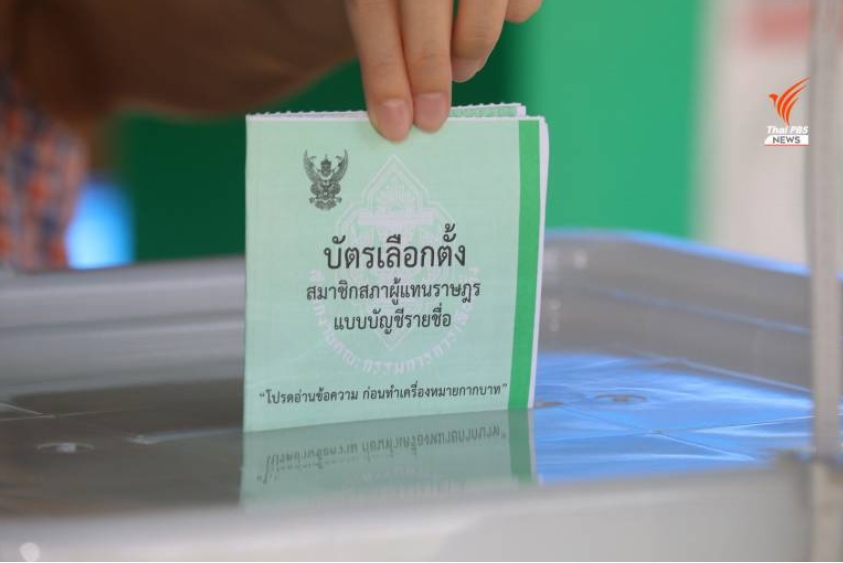Election Commission explains penalties facing dishonest electoral candidates

The Office of the Election Commission (EC) explained today (Thursday) why the Election Commission (EC) has decided to withhold the confirmation of poll results for 71 constituency MPs-elect from eight parties in 37 provinces.
They include 23 from the Bhumjaithai party, 17 from Pheu Thai, 16 from Palang Pracharath, 6 from Move Forward, 3 each from the Democrats and United Thai Nation, 2 from Thai Sang Thai and one from Pheu Thai Ruam Palang.
The EC’s Office explained that, if there is reason to suspect or if it is evident that there are irregularities relating to election or political party, laws which may render the election unfair or dishonest, the EC is empowered to impose penalties.
The EC can hand out red, yellow, orange or black “cards” to the candidates, in accordance with the severity of the offence:
- Yellow card: The card can be issued before the Election Day or after the announcement of election results. Before the election, if election officials discover that an election in a constituency is unfair, they can cancel the election and order a fresh poll. If, after the announcement of poll results, there is enough evidence to indicate that the election in a constituency is unfair due to the conduct of the winning candidate, the EC can take the case to the Supreme Court or order a fresh election to be held in the constituency.
- Orange card: The EC can issue an orange card to stop an unqualified candidate from contesting the poll. Before the election, the EC must file a petition with the Supreme Court to withdraw the unqualified candidate from the list of electoral candidates. Alternatively, the EC can temporarily suspend the right to contest an election of the candidate, but not for more than a year. If the candidate has obtained sufficient votes to win the election, the EC can order a fresh election in the constituency.
- Red card: After the announcement of the poll results, if there is evidence that a candidate has cheated in the election or knowingly conspired with others to cheat, the EC can ask the Supreme Court to withdraw the voting rights and the right to contest an election of the candidate in question. The court can order the candidate’s voting rights and the right to contest an election withdrawn for ten years. If a fresh election is to be held, the court can order to candidate to bare all expenses incurred.
- Black card: After the announcement of the election results, if there is sufficient evidence that any candidate was involved in election cheating or conspired with others to cheat, the EC can ask the Supreme Court to withdraw the candidate’s voting rights and right to contest an election for life.






